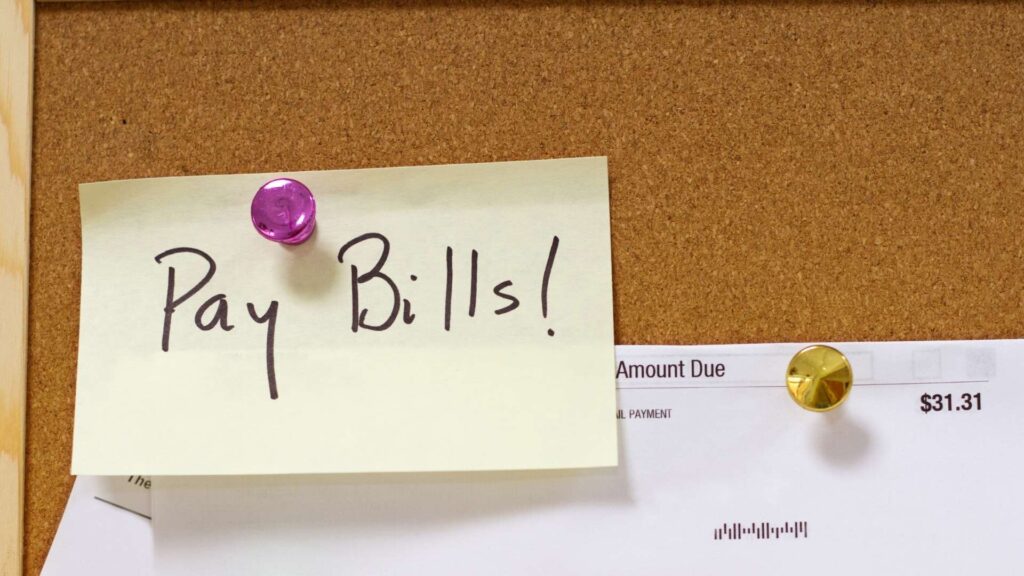Introduction
One of the most fundamental habits for achieving financial health is to **pay bills on time**. While it might seem simple, many people struggle with late payments due to poor organization, cash flow issues, or just forgetting the due dates. Failing to pay your bills promptly can result in late fees, damaged credit scores, and added stress. Fortunately, there are effective strategies you can adopt to make timely bill payments a consistent habit and take control of your finances.
Why It’s Important to Pay Bills on Time
Paying your bills on time impacts more than just your monthly cash flow. Here are some key benefits:
- Protect Your Credit Score: Payment history is one of the largest factors in your credit score. Late payments can stay on your report for up to seven years.
- Avoid Late Fees: Missing a payment often results in penalty fees, which can quickly add up and strain your finances.
- Improve Loan Approval Chances: A clean payment history shows lenders that you’re a responsible borrower, which helps when applying for loans or credit cards.
- Reduce Stress: Staying on top of your bills gives you peace of mind and reduces the anxiety that can come from financial disorganization.
Common Reasons People Miss Payments
Understanding the causes of late payments can help you avoid them. Some of the most common include:
– Forgetting the due date
– Not having enough funds in your account
– Receiving bills in different formats (paper, email, app notifications)
– Failing to organize or track due dates
– Waiting for the last minute to pay
Once you recognize these triggers, you can put systems in place to combat them.
How to Pay Bills on Time: Practical Strategies
1. Create a Bill Payment Calendar
Use a calendar — digital or physical — to track all your bill due dates. Mark down each bill’s name, due date, and amount. Set reminders a few days in advance to give yourself time to transfer money or make payments. Syncing this calendar with your phone can also help ensure you get timely notifications.
2. Set Up Automatic Payments
Many service providers offer the option to automate payments via debit or credit card. Automating recurring bills like rent, utilities, loans, or subscription services ensures you’ll never forget to pay. Just be sure to keep enough funds in your account to avoid overdrafts.
3. Use Budgeting Tools and Apps
Personal finance apps such as Mint, YNAB (You Need a Budget), and PocketGuard can track due dates, help allocate funds, and notify you when bills are approaching. These tools make it easier to manage your finances from a single dashboard.
4. Consolidate Your Bills
If possible, try to align all your bills to be due around the same date or pay them in batches. This simplifies your payment schedule and helps reduce the chance of forgetting smaller or irregular bills.
5. Maintain a Bill Payment Checklist
A monthly checklist allows you to manually check off each bill after it’s paid. This physical act reinforces the habit and gives you a clear overview of what’s been paid and what’s pending.
6. Create a Buffer in Your Bank Account
It’s a good idea to maintain a cushion of extra funds in your checking account. Even a $100–$200 buffer can help you avoid bounced payments or overdraft fees if your timing is off.
7. Review Statements Regularly
Even with automation, you should regularly review your bills and bank statements for accuracy. This helps catch unexpected charges, duplicate payments, or fraudulent activity.
8. Prioritize Bills Based on Importance
If you’re struggling financially and can’t pay every bill on time, prioritize essential bills like rent or mortgage, utilities, and insurance. Contact other providers to ask about payment plans or temporary extensions.
Dealing With Missed or Late Payments
If you’ve missed a payment, don’t panic. Here’s what you can do:
– **Pay it as soon as possible.** Many companies offer a short grace period.
– **Call the provider.** Explain your situation and ask to waive late fees if it’s your first offense.
– **Set up payment arrangements.** Some providers will work with you to create a short-term payment plan.
– **Check your credit report.** Ensure the late payment hasn’t been incorrectly reported and dispute errors if necessary.
Long-Term Benefits of Paying Bills on Time
When you develop a habit of timely payments, you begin to see broader improvements in your financial life:
– Increased credit score, leading to better interest rates
– Fewer financial emergencies due to better planning
– Improved relationships with creditors and service providers
– A stronger sense of financial discipline and independence
Tips to Stay Consistent
Consistency is key when it comes to financial habits. Here are a few extra tips to stay on track:
– Review your finances weekly or bi-weekly
– Set clear financial goals and tie them to your bill-paying habits
– Reward yourself for maintaining a streak of on-time payments
– Share your goals with an accountability partner or financial coach
Conclusion
The ability to pay bills on time is a cornerstone of good financial health. It may take some time to build the habit, but once you’ve integrated the right tools and routines into your life, staying organized and current with payments becomes second nature. Use the strategies outlined in this article to create a reliable system, reduce stress, and protect your credit and finances for the long term. By committing to this simple but powerful habit, you set the foundation for financial stability and future success.



